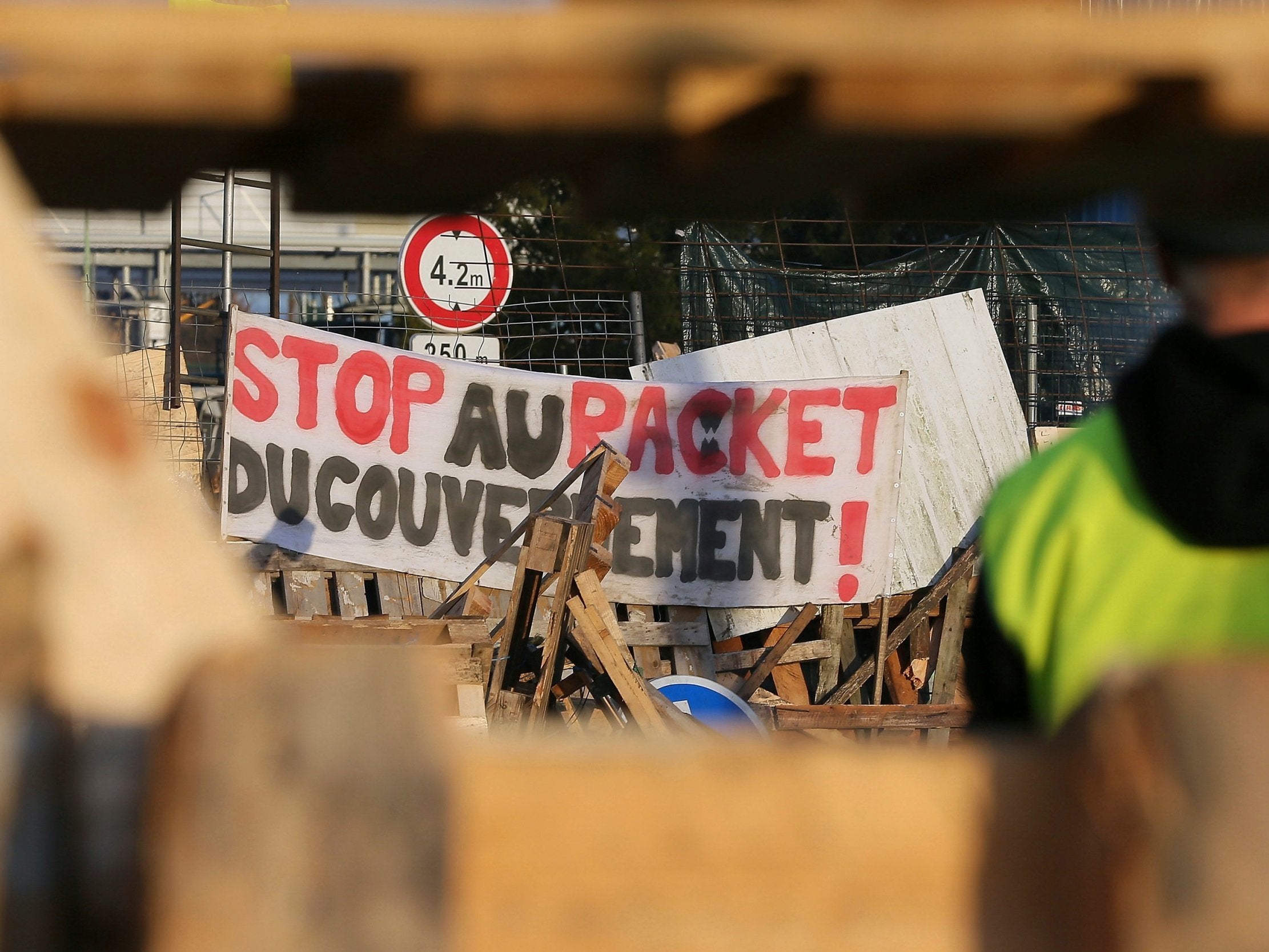Yellow vests declare French government fuel-tax pause not enough: ‘We cannot live like this anymore’
Protesters vow demonstrations will continue until meaningful promises are guaranteed

Your support helps us to tell the story
From reproductive rights to climate change to Big Tech, The Independent is on the ground when the story is developing. Whether it's investigating the financials of Elon Musk's pro-Trump PAC or producing our latest documentary, 'The A Word', which shines a light on the American women fighting for reproductive rights, we know how important it is to parse out the facts from the messaging.
At such a critical moment in US history, we need reporters on the ground. Your donation allows us to keep sending journalists to speak to both sides of the story.
The Independent is trusted by Americans across the entire political spectrum. And unlike many other quality news outlets, we choose not to lock Americans out of our reporting and analysis with paywalls. We believe quality journalism should be available to everyone, paid for by those who can afford it.
Your support makes all the difference.After scenes of violence and burning buildings, smashed windows and torched cars in central Paris, the French government has been forced to pause some policy changes.
In a televised address on Tuesday morning, the prime minister, Edouard Philippe, declared: “No tax deserves to endanger the Nation’s unity.”
To avoid new civil unrest, the prime minister announced a six-month suspension of the unpopular planned rise in fuel taxes – the catalyst for the citizens’ protest movement known as the gilets jaunes (yellow vests). The increase in gas and electricity prices has also been suspended.
The government now leaves itself six months, during which no taxes can increase, to lead discussions. President Emmanuel Macron promised last week a large “consultation”, opened to “all French people who wish to speak”. This “broad debate on taxes and public spending” is scheduled to begin on 15 December and end on 1 March.
For the yellow vests, these announcements are very far from having answered their demands. They wanted the tax to be scrapped altogether, and a mere suspension does not seem to have appeased their anger.
“It is too late to propose fake, small measures,” said Benjamin Cauchy, one of the gilets jaunes spokespeople.
“We are striving to make ends meet. We cannot live like this anymore. We need change now, not in a few months and certainly not at the end of Macron’s five-year term,” said Jean-François Barnabat, another spokesperson for the movement.
For him “six months suspension is insulting”. Others wonder: “In six months, what will we do? Will we have to demonstrate again?”
We are striving to make ends meet. We cannot live like this anymore. We need change now, not in a few months and certainly not at the end of Macron’s five-year term
For the political scientist Stéphane Wahnich, even if Macron seems to have understood the seriousness of the situation, cancelling a scheduled trip to Serbia to stay in France to face the crisis, the answer is insufficient.
“When you have such a movement in the streets and in the public opinion, you cancel everything,” he said. He sees in this movement many similarities with the great student movement of 1986.
At that time, Jacques Chirac and his minister of education Alain Devaquet tried to establish a new selection process for getting into university, a bill which provoked the wrath of students.
A million took to the streets. But the movement degenerated into violent confrontations and a student, Malek Oussekin, died in clashes with the police. Today, the movement of yellow vests has the same characteristics.
“An innovative movement and a government that does not understand what is happening,” said Wahnich. “And especially”, he added, “a movement that slips from the initiators’ control, to the benefit of the rioters.”
But, he says, the yellow vests crisis is different in an important way, because unlike the very democratic student movement of 1986 with every representative elected by them, the yellow vests “are not democratic”, says Wahnich.
“Yellow vests have self-appointed representatives, and some receive death threats to prevent them from negotiating with the government.
On the other hand, he adds, many yellow vests also took part in the riots, not just peaceful demonstrations, and gilets jaune were among those arrested in Paris on Saturday.
“It is unfortunate to reach this violent climate,” said Benjamin Cauchy, another gilets jaunes spokesperson.
He himself received threats against himself and his family. “I condemn those violent riots,” he said, “but violence first came from the government failing to answer our demands for four weeks,” he adds. He recognises that the “gilet jaunes” movement is being split in two: “a majority fraction that wants to discuss with the government and a minority fraction of rioters who are just looking for street battles”.
In 1986, to put an end to riots, then prime minister Chirac and Devacquet buried the law, allowing calm to return. But today, the government, by proposing only a suspension, has not put an end to the movement.
And the yellow vests are maintaining their call for renewed demonstrations, this coming weekend in the French capital.
Cauchy said: “We must not fear demonstrations on Saturday in Paris, because they will take place.”
Join our commenting forum
Join thought-provoking conversations, follow other Independent readers and see their replies
Comments